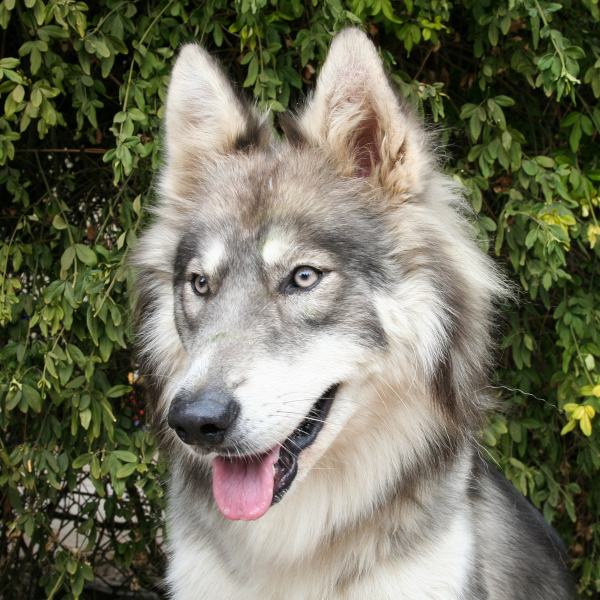Quick Summary

Click here for Price and Turnaround Time
Wolf-dog hybrids have been produced by crossing wolves with wolf-like dog breeds such as Siberian Husky, German Shepherd, and Alaskan Malamute. Occasionally natural wolf-dog hybrids occur, usually when a female dog in estrus strays and is mated by a wild male wolf. Many states in the US restrict wolf-dog hybrids as pets, due to the unpredictable temperament of these canids. It has been estimated that there are upwards of 300,000 wolf-dog hybrids in the US.
The VGL wolf-hybrid test consists of 3-4 types of assays (depending on whether animals are female or male) and analyses: Y-chromosome haplotype, X-chromosome haplotype, wolf-specific DNA markers and population analysis of DNA markers. Below is a more detailed description:
- Males are tested with Y-chromosome markers and results compared to our database of known wolf and dog haplotypes. Results are reported as Dog, Wolf, Inconclusive (if found in both dogs and wolves) or Not-Applicable (if female).
- Males and females are tested with X-chromosome markers and results compared to our database of known wolf and dog haplotypes. Results are reported as Dog, Wolf, Hybrid (if female).
- We test for 22 DNA STR (short tandem repeat) markers that have variants specific to wolves. Results are reported as Present (if wolf variants are detected) or Not Detected (if no wolf variant is observed).
Because of their close genetic relationship, dogs and wolves share most alleles in STR markers used for this test. Wolf-specific alleles in our STR marker panel are also infrequent in wolves such that not all wolves possess these alleles. Although our test is powerful to detect hybridization, absence of wolf-specific alleles is not a guarantee that there is no wolf ancestry.
- Population analyses are done with panels of 38 STR and 30 SNP (Single Nucleotide Polymorphism) markers. Genotype data is compared to a database for Alaskan Husky, Siberian Husky, Alaskan Malamute, Inuit dogs, Belgian Malinois, German Shepherds and North American Wolves. The dog breeds were chosen because they are commonly used to produce hybrids in North America. Population assignment and admixture analyses determine the likelihood that the subject animal is a dog, wolf, or hybrid. Results are reported as Dog, Wolf, or Hybrid.
The dog-wolf hybrid test is powerful enough to detect hybrids within 3 generations. Because of the close genetic relationship among dogs and wolves, wolf ancestry beyond 3 generations may be undetectable by these tests.
